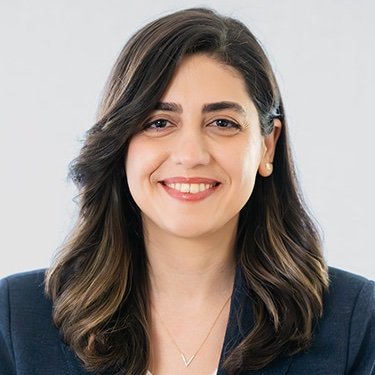
Sedi Shabanan
@SShabanan
Followers
733
Following
3K
Media
30
Statuses
206
MD, MPH | PGY-2 @YaleRadiology | s/p @TehUofMed, Post-doc @UCSDHealthSci, PGY-1 @StanfordGenSurg | Member-in-training @LIRADS5 and @radiology_rsna
New Haven, CT
Joined April 2022
Full article in Radiology: https://t.co/BnidPS4OBe
#Radiology #MASLD #MRI #T2DM
@RITEditor @Radiology_Editor @ProfVickyGoh @chemshift1 @VChernyakMD
pubs.rsna.org
The liver MRI–derived proton density fat fraction (PDFF) independently predicted prediabetes and diabetes risk in patients with obesity, and the liver PDFF–dysglycemia relationship was partially me...
0
0
2
Take-home: - MRI-derived PDFF predicts prediabetes & diabetes risk in obesity. - Shows a robust, dose–response relationship, validated in an independent cohort. - Radiologists can report PDFF values as clinically actionable information. A step toward precision metabolic imaging.
1
0
3
Clinical relevance: - Liver PDFF is more than just a steatosis marker. - It can serve as a quantitative metabolic biomarker, aiding risk stratification in obesity. - Even mild elevations may carry important risk implications.
1
0
3
Mechanistic insight: The PDFF–dysglycemia link was partially mediated by: - ALT (38.8%) - AST (27.3%) Suggests hepatocyte injury is a key pathway connecting steatosis with glucose dysregulation.
1
0
3
Key results: - Each 1% increase in PDFF → OR 1.04 for prediabetes/T2DM (P<.001). - Severe steatosis (PDFF≥25%): OR ~3.5 for both prediabetes & #diabetes. - Independent cohort confirmed higher PDFF in dysglycemia (19.7% vs 12.9%).
1
0
3
Study design: - Retrospective cohort of 683 obese adults (BMI ≥28). - MRI-PDFF measured liver fat across all 8 Couinaud segments. - 75g OGTT classified glycemic status (normal, prediabetes, T2DM). - Independent validation cohort (n=100).
1
0
3
📢 New in @Radiology_RSNA: Liver MRI–derived proton density fat fraction (PDFF) predicts #diabetes risk in pts with obesity, with a clear dose–response relationship. Deng et al. https://t.co/BnidPS4OBe
@RITEditor @Radiology_Editor @ProfVickyGoh @chemshift1
pubs.rsna.org
The liver MRI–derived proton density fat fraction (PDFF) independently predicted prediabetes and diabetes risk in patients with obesity, and the liver PDFF–dysglycemia relationship was partially me...
1
11
38
Thanks for your support 😌
Super proud of our @YaleRadiology crew representation at the outstanding annual @SABImaging #sabi2025 meeting! Especially proud of our @YaleRadRes who won several awards!
2
0
39
0
3
51
Proud of our very own @YaleRadiology resident, Dennise Caruana, for an awesome presentation today! #SABI2025 #radres
1
6
62
As the #Match2026 season picks up, we’re excited to share our recent publication: Applying for an American Radiology Residency As an International Medical Graduate: The NRMP Match. We hope this guide supports your journey, and we wish all IMGs the very best in the months ahead!
1
17
104
Hello #MedTwitter! I’m Mahnaz Hosseinibensenjan, MD-MPH, and a research scholar @UCSD_Liver Imaging Group Excited to apply for Diagnostic Radiology in #Match2026 (AAMC: 16752344) Looking forward to connecting with peers and programs! #RadTwitter #FutureRadRes @Inside_TheMatch
5
14
109
Hello #MedTwitter! I’m Niloufar, an IMG grad & a postdoctoral researcher now @uciradiology, thrilled to begin my #Match2026 journey (AAMC: 16260471) after years of passion for #DiagnosticRadiology 🩻 Outside the hospital, I find inspiration and refuel with painting🎨 & exploring
15
25
235
Hello #MedTwitter! I’m Negar (Nela), a US-IMG grad of @TehUofMed and current research fellow at @UWRadiology applying for Diagnostic Radiology for #Match2026. In my free time, I love cuddling with my cats or hiking in the beautiful scenery of Seattle🌲 Looking forward to
9
25
276
9/ Read more in Radiology: Wooldrik SM, van de Voort EMF, Struik GM, et al. “Percutaneous thermal ablation for early-stage breast cancer” @VChernyakMD @RITEditor @RadiologyEditor 🔗
pubs.rsna.org
This phase II study compared radiofrequency ablation, microwave ablation, and cryoablation for early-stage breast cancer, demonstrating that cryoablation achieved the highest complete ablation rate...
0
0
0
8/ Conclusion Cryoablation emerges as the preferred technique for future trials evaluating percutaneous thermal ablation as an alternative to surgery in early-stage breast cancer.
1
0
2
7/ Why it matters Breast-conserving surgery is standard for early-stage breast cancer. But a safe, effective, minimally invasive alternative could: - Reduce morbidity - Improve cosmetic outcomes - Expand patient options
1
0
0
6/ Take-home message: Cryoablation achieved the best balance: ✅Highest pCR (94%) ✅No complications ✅Well tolerated, outpatient feasible 👉Selected for phase III trial as potential surgical alternative
1
0
0
5/ Procedural details: - All under local anesthesia, outpatient setting - MRI pre- and post-ablation confirmed treatment effect - Pain scores low, usability scores high - Adverse events (skin burns, need for oncoplastic surgery) occurred only in RFA/MWA arms
1
0
0







